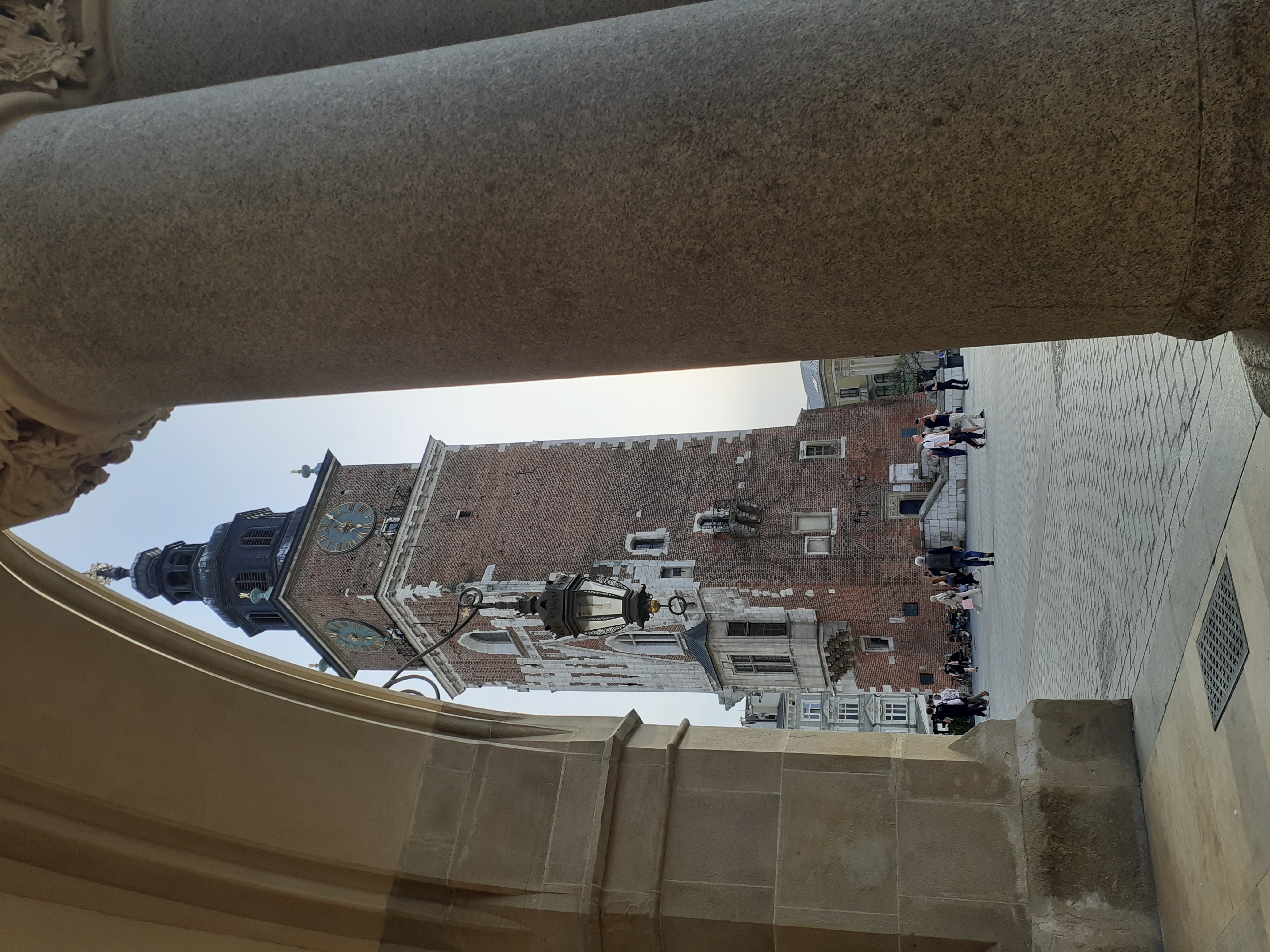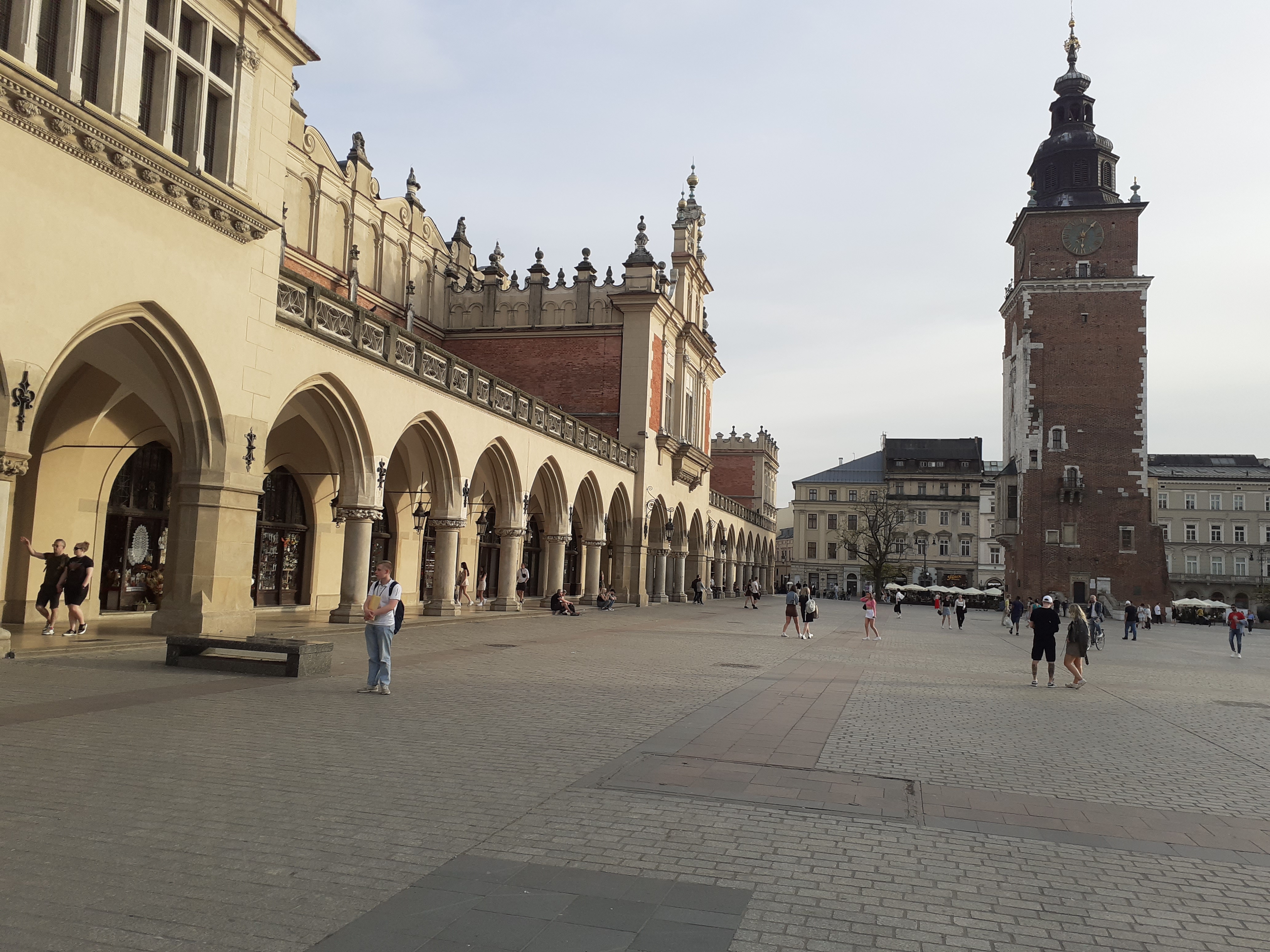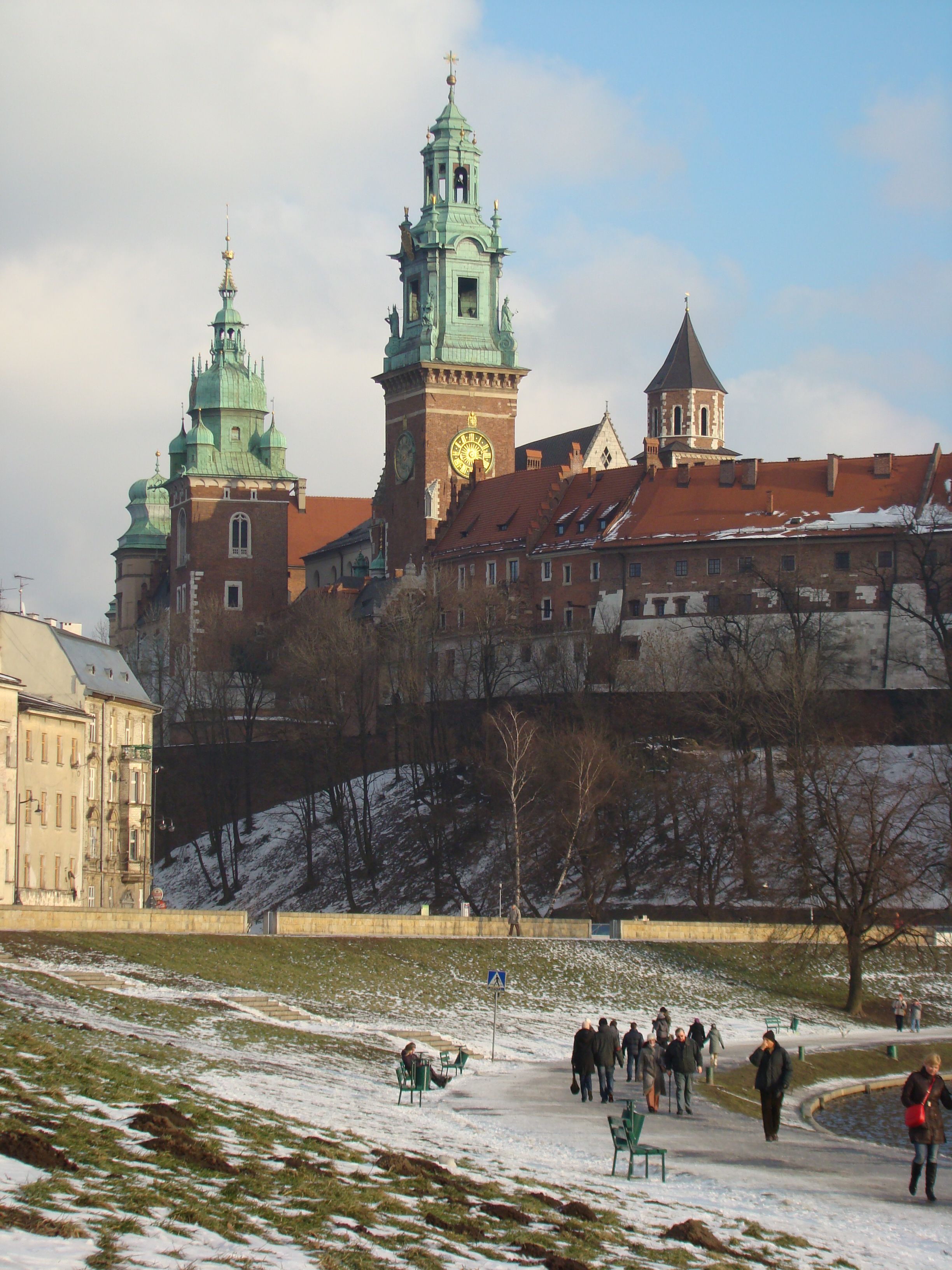Krakow was the capital of late medieval and Renaissance Poland. The Wawel Hill, rising above the bend of the Vistula River, since centuries housing the Royal Castle and the coronation cathedral of Polish kings as well as the royal necropolis. It was already a political center and the seat of princes in the ninth century. The Gothic cathedral has a Baroque interior design and numerous Renaissance or Baroque chapels. The present, Renaissance appearance of the Royal Castle is the result of works carried out in the sixteenth century by Italian architects. In the Middle Ages, there was a borough around the Wawel hill, and in 1257 a new medieval town was founded under German law, with a perpendicular grid of streets, market squares, surrounded by a city wall with numerous gates. The main shopping square, the Market Square, is the largest urban market of the medieval Europe. It has an area of 4 hectares. Krakow was the seat of the first Polish university, founded in 1364. Nicolaus Copernicus studied here.
The city, miraculously survived and undestroyed during World War II, after the war became a place of intensively developed industry. Today, Krakow is the second largest city in Poland. It is a great academic and scientific center with several universities, research institutes and art schools. It is also a very important cultural center with numerous museums, concert halls and theatres.
It is worth adding that seven of Poland’s existing UNESCO World Heritage Sites are in and around Krakow (the centre of Krakow was first to be added to the list).
/J.W.Mietelski/



Photos by J.W. Mietelski
